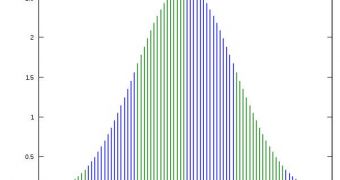Experts from the University of Minnesota's Twin Cities and Morris campuses have proven in a recent study that people with a higher measure of cognitive abilities than the average are more likely to take better economic decisions, at least in some cases. The new research, which focused on about 1,000 trainee truck drivers recruited from the Schneider National, Inc. company, will be published later this week, in the online issue of the Proceedings of the National Academy of Sciences. The goal was to assess how the people involved in the study dealt with their daily economic woes, and how or if they emerged “victorious.”
The American motor carrier Schneider National, Inc. employs about 20,000, but was kind enough to allow for 1,000 of its trainee truck drivers to participate in the new UM study. The test subjects had their cognitive skills measured at first, and were then asked to make a series of economic choices in a given context. Afterwards, the researchers followed them on the job, and analyzed the risks the drivers took, their financial decisions in real life, as well as a host of other factors. The investigators were also interested in learning if the drivers showed “predictive” skills in anticipating the behavior of others.
Results of the study showed that those of the test subjects who scored highest in the IQ tests were more willing to take calculated risks, and to also succeed after taking them. Moreover, they exhibited a constant trend in the decisions they made, in that they did not behave economically different in similar or identical situations. In regards to others, they exhibited a very high level of “anticipatory” skills, which turned out to be especially useful in traffic. Experts expected to find these traits in these individuals, but thus far scientific studies have failed to demonstrate them in a complex investigation.
The experts also looked at how the trainees behaved in regards to their jobs. Schneider National usually pays for the training of those of its drivers who remain aboard for more than a year. However, those who decide to leave before the year is up find themselves owing thousands of dollars to the company, a situation that would have anyone think twice before leaving. According to the UM study, trainees with the highest IQs were two times less likely to leave than those with a lower intelligence coefficient.
“These results could shed light on the causes of differential economic success among individuals and among nations,” Aldo Rustichini, who is an economist at the University of Minnesota-Twin Cities, explained. He has also been the co-author of the new paper, and his theoretical work has been extensively used within the research. “It also suggests that the benefit from early childhood education programs not only affects cognitive skills, but extends to more effective economic decision-making,” University of Minnesota-Morris Economist Stephen Burks, who has been another co-author of the investigation, added. He has been in charge with setting up the data-collecting project.

 14 DAY TRIAL //
14 DAY TRIAL //